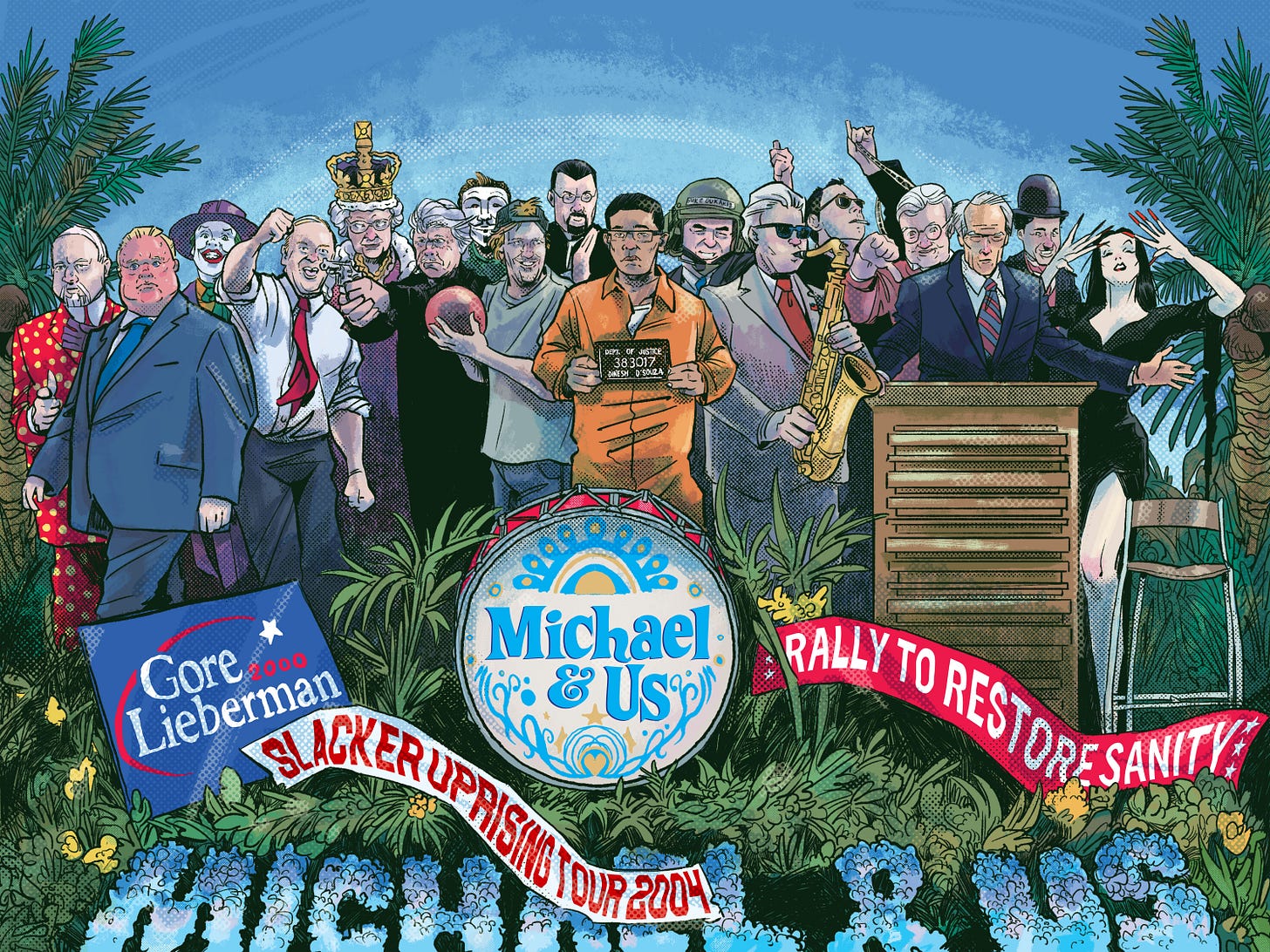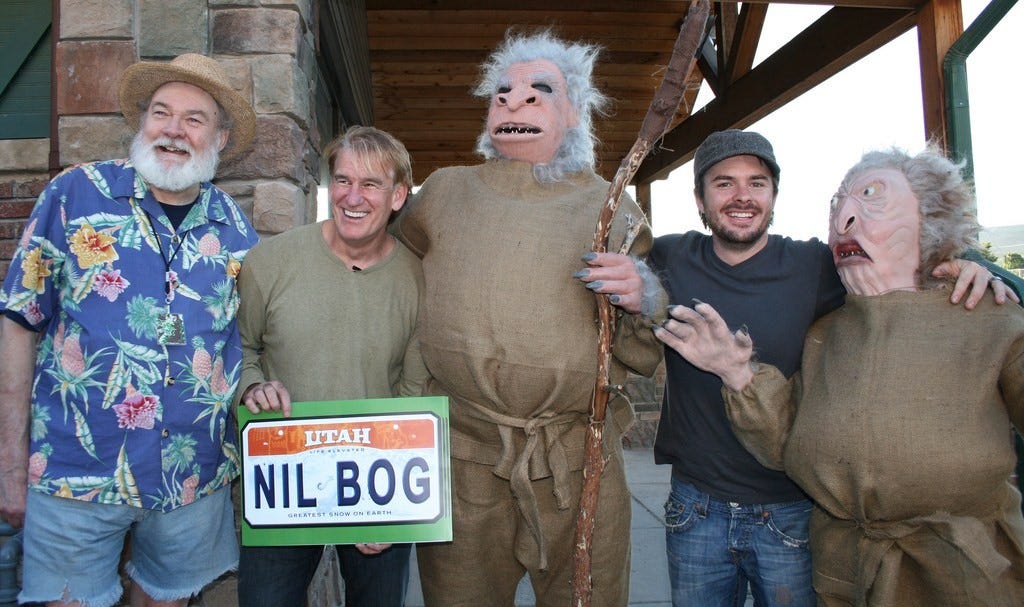Emersonian Bible #1: Sontag, Cole, Carpenter
Quotes, recommendations, and reader responses.
“Make your own Bible. Select and collect all the words and sentences that in all your readings have been to you like the blast of a trumpet.” -Ralph Waldo Emerson
I’m excited to debut Emersonian Bible, a new series to spotlight some of my collected “trumpet blasts” for Discontent Dispatch readers and subscribers. Each edition will contain a Daily Devotional with a few quotes, Recommendations of things to read, watch, or listen to, and Reader Reactions to recent Dispatch pieces. Readers are also invited to share and discuss whatever they like in the comments on this post. The only rule is don’t be a dick.
For now, Emersonian Bible posts will be irregular and experimental. They’ll appear at my discretion, most likely every 3-4 months on the current publication schedule. Future installments may include announcements, selections from the growing Dispatch archives, and other yet-to-be-determined features. We’ll see!
Because I’m a generalist with no plans to specialize, I expect to attract readers with a variety of interests. Readers interested in my work on literary fiction may not necessarily be drawn to posts on horror movies, or vice versa. Emersonian Bible will give all readers a place to meet on level ground, no matter their interest. That’s my hope, anyway.
Daily Devotional
“A work of art encountered as a work of art is an experience, not a statement or an answer to a question. Art is not only about something; it is something. A work of art is a thing in the world, not just a text or a commentary on the world.” -Susan Sontag, “On Style”
The claim is often made that people who read literature are wiser or kinder, that literature inspires empathy. But is that true? I find that literature doesn’t really do those things. After observing the foreign policies of the so-called developed countries, I cannot trust any complacent claims about the power of literature to inspire empathy. Sometimes, even, it seems that the more libraries we have over here, the more likely we are to bomb people over there.
What we can go to literature for is both larger and smaller than any cliché about how it makes us more empathetic. Literature does not stop the persecution of humans or the prosecution of humanitarians. It does not stop bombs. It does not, no matter how finely wrought, change the minds of the little fascists who once more threaten to overrun the West. So what is it good for – all this effort, this labor, this sweating over the right word, the correct translation?
I offer this: literature can save a life. Just one life at a time. Perhaps at 4 AM when you get out of bed and pull a book of poetry from the shelf. Perhaps over a week in summer when you’re absorbed in a great novel. Something deeply personal happens there, something both tonic and sustaining. -Teju Cole
Every generation reinvents horror. They reinvent it in their own time and form their own point of view. The things that are floating in the culture, that scare us – those are always changing. The basic fears stay the same. You’re born afraid: you get whacked on the ass when you’re born. They cut the cord! Come on! That’s terrible! Why do you think we all cry when we come out? “I want to go back in!” Horror movies are always about that: I want to go back in. -John Carpenter
Recommendations
The Michael & Us podcast

Over the last few years, Michael & Us has followed a strange trajectory, morphing from a Michael Moore recap podcast into a Frankenstein’s monster of film criticism, political commentary, and post-post-post ironic metacomedy. Needless to say, it’s my favorite podcast. Each episode begins with a brief discussion of political and/or entertainment news before segueing into an in-depth discussion of a film or TV show, which could be anything from Cries & Whispers to South Park to the documentaries of Alexandra Pelosi (daughter of Nancy). Co-hosts Luke Savage and Will Sloan bring insight and wit to every topic, but their greatest talent is spinning shit into gold. Case in point: the 73-minute deep dive into Nora Ephron’s 1999 romantic comedy You’ve Got Mail, which may be the single best podcast episode I’ve ever heard. Michael & Us Nation, right or wrong, I love thee still.
Best Worst Movie (2009)
I’ve seen Troll 2 more times than I’ve seen Citizen Kane. There’s something about that weird little accident of a movie – catastrophically bad by any rational standard – that a million so-called “so bad it’s good” tryhards could never hope to match. You can’t plan for that kind of oddball energy. It can only happen by accident.
Best Worst Movie presents itself as an investigation of Troll 2 and its large cult following. For director Michael Paul Stephenson, the subject is personal, since his starring turn in the film derailed his career as a child actor. Others in the cast and crew have similarly ambivalent relationships to the movie, and Stephenson’s profiles of them are fascinating mini character studies: there’s George Hardy (Michael Waits in Troll 2), whose dental practice in Alexander City, Alabama has made him a beloved community figure, Margo Prey (Diana Waits), who still dreams of an acting career while caring for her nonagenarian mother in Salt Lake City, and director Claudio Fragasso, for whom Troll 2 fans’ quasi-ironic posturing grates on his sincere belief in his artistic achievement. These profiles, along with those of various Troll 2 fans and acolytes, give Best Worst Movie a How To with John Wilson-esque quality. Most people are truly weird, this movie tells us, but that weirdness just might be their best feature.
As Stephenson and Hardy become caught up in a whirlwind of Troll 2 screenings and comic book conventions, Best Worst Movie evolves from strange history of an offbeat cult classic into a love letter to the movies: to fandom, video store culture, and the communities that spring up around it all. In college, I missed a chance to see this movie on a double bill with Troll 2, with cast and crew members present. I’ve always regretted that.
Reader Reactions
I am an enormous fan of Pound and the Cantos are simply stunning to read, if also agonising in places.
Separating the poisonous politics from the poetry is I think unusually difficult with Pound, because his entire objective was to entwine and embed the Cantos with history.
The Cantos contain history but are also part of history - a sort of account of a certain type of intellect and psychology though a period of 20th century history.
To be fair I think this article captures that tension quite well. And that tension exists precisely because Pound succeeded poetically in fusing these things.
Here’s a personal anecdote.
Pound’s model bank, referred to at some length in the Cantos, was Monte Dei Paschi Di Siena - founded in the 14th century with a deep sense of banking as a social good or “investing in its community” as banking PRs would say these days.
I used to be a financial journalist and entirely coincidentally was reading the Cantos during the financial crisis of 2009-10.
During that crisis Monte Dei Paschi was embroiled in crisis having previously transformed itself into a more typically commercial operation - stock market listing, more commercial lending etc.
So suddenly for me, seemingly out of no-where, there was Pound and the Cantos! Directly present in a current global crisis.
A crisis caused in no small way by what he would have called usury: credit as an exercise in moving notionally sums of money around to gain a return, without regard for whether it was being economically/socially productive.
Sadly we have also since 2010 also seen the return of the poisonous politics that seduced Pound.
Anyway, that is all just anecdote, but for me it illustrates how taking the history/politics out of Pound and taking Pound out of his context in history/politics is actually almost impossible.
And oddly that is precisely what he was aiming to achieve.
-Reddit user VictorChariot
That’s it for the inaugural edition of Emersonian Bible. Remember, the comments are an open thread. If you like, leave your own quotations, recommendations, and reactions below.




What a refreshing way to end the work day. (And trust me, it was much needed). I can't wait to follow this series and see what else you recommend.